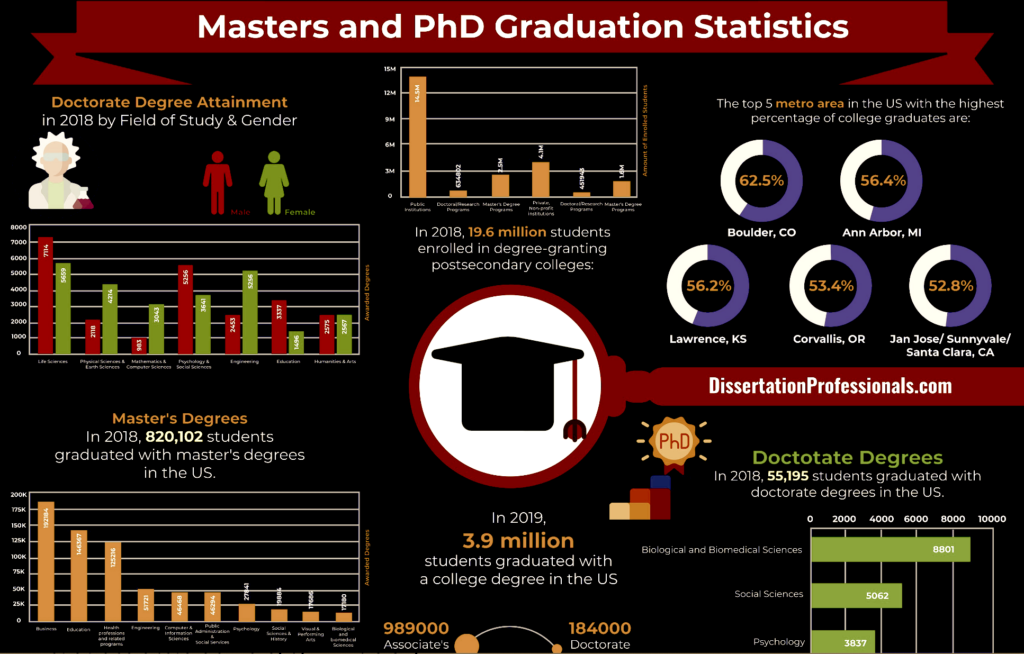- 23 Selby Cl, Chislehurst BR7 5RU, United Kingdom
Kirill Yurovskiy, how to become PHD - dissertation writing
Hello, aspiring scholars! I am Kirill Yurovskiy, and I’ve spent years navigating the challenging yet rewarding path of becoming a Doctor of Sciences. Through this journey, I’ve learned the intricacies of thesis writing and the dedication required to excel in academia. With years of experience in dissertation writing and academic counseling, I’m here to share my insights and assist you through this challenging yet rewarding process.
Pursuing a PhD is a long but rewarding journey that requires dedication, perseverance, and support. As someone who provides dissertation assistance, I understand the challenges of the PhD process, but also the immense satisfaction of conducting original research. My goal is to walk you through the basic steps of earning a doctoral degree, drawing on my experience helping hundreds of students successfully complete their doctoral studies.
My Journey through
Graduate School and
Dissertation Writing

As an ambitious student looking to push the boundaries of knowledge, I set my sights on attaining a Doctor of Sciences degree. This advanced academic credential would give me the skills and qualifications to conduct independent research and make original contributions in my field of study. My journey was intense yet rewarding, full of late nights poring over academic literature, close collaboration with brilliant faculty advisors, and the thrill of discovery as my dissertation project took shape. In this article, I’ll share my firsthand experience earning a doctor of sciences, along with tips for mastering thesis writing.
After completing my master’s degree, I considered various doctoral programs before selecting one aligned with my research interests. I looked for departments doing innovative work in my specialty area and where potential advisors had funding to support a new doctoral candidate. It was also important to find a program with all the resources I would need, from lab equipment to statistical analysis software. Through conversations with current students, I got a sense of the program’s academic rigor, typical timelines to graduate, and career placements after graduation. In the end, I chose a small, collegial doctoral program with faculty dedicated to student success.
Passing Qualifying Exams
Many doctoral programs begin with a series of intensive qualifying exams testing your grasp of core theories and methods in your field. My program included both written exams with essay-style responses covering a breadth of topics, as well as an oral defense testing depth of knowledge on my specific research concentration. Preparing for these exams dominated my first two years of the program between organizing study groups, making flashcards for memorization, and reviewing past tests. I had to synthesize material from years of previous coursework and demonstrate I could apply knowledge to analyze new problems. Passing these exams was my ticket to begin working on my dissertation.
Finding the Right Research Questions
After advancing to doctoral candidacy, the next step was framing my research direction through exploratory reading and initial studies. I worked closely with my advisor and committee members to identify critical unanswered questions that would contribute new thinking. We drafted research proposals examining questions around improving educational access for marginalized communities through emerging technologies. My advisors pushed me to articulate hypotheses, predict findings, and define success metrics while avoiding scope creep. In the end, we arrived at tightly focused research questions balancing ambition, feasibility, and significance in a 4-5 year timeline. This phase was vital to strategically targeting my effort.
Conducting Original Research
The heart of the doctoral degree lies in making an original scholarly contribution by collecting and analyzing new primary data. In my case, this involved designing a multi-year intervention study evaluating online education modules for underserved high school students. My advisor helped me file for approval from our university ethics review board to ensure sound experimental design and protocols for human subject protections. From there, I coordinated with school administrators on recruiting participants, getting parental consent, administering surveys, and tracking usage analytics. Managing moving parts felt overwhelming at first. However, staying organized with detailed project plans and checklists kept everything on track.
Content Creation
As the data rolled in, the most intense portion hit—sifting through it all to extract meaningful insights. This involved late nights teaching myself new statistical analysis programs to identify trends and relationships across various measures. During regular meetings, my dissertation committee reviewed my progress giving feedback on the rigor of my analytical strategy. They pushed me to go beyond merely describing outcomes to make insightful inferences rooted directly in the findings. It took time before I stepped back to see the big picture of what I had uncovered through all the detailed analyses. Only then was I able to contextualize the significance within existing academic literature and articulate the conclusions that would form my central doctoral thesis.
Writing and Defending My Dissertation
The final rite of passage was codifying years of study into a 200-page dissertation acceptable to my research committee. Organizing my argument took patience, writing in many iterative drafts to link background, methods, findings, and conclusions into a cohesive scientific narrative. My advisors gave invaluable feedback on strengthening my academic voice to sound logical and authoritative. I utilized reference management software to catalog sources, cite properly, and trace how my original analysis built upon and departed from previous work. After rounds of editing, I prepared graphics illustrating key data patterns and booked a defense date. Defending my dissertation conclusion in a rigorous oral examination before my whole committee was intensely nerve-wracking after so much accumulated effort. However, hearing them confer that my work passed their strict benchmarks filled me with incredible relief and pride in earning my Doctor of Sciences degree.

How to Become a PhD: A Comprehensive Guide by Kirill Yurovskiy

Choosing a program
The first step is selecting reputable PhD programs that align with your research interests and career goals. Thoroughly research programs, faculties, funding opportunities, completion rates, career outcomes etc. Apply to 5-10 programs, highlighting your academic achievements, relevant experience, research potential, and fit for each program. Securing acceptance into competitive PhD programs requires planning and polished applications.
Finding a supervisor
An engaged, supportive supervisor makes a huge difference. Browse faculty profiles and publications to identify potential supervisors aligning with your research interests. Reach out to faculty before applying and when invited for interviews to establish relationships. An advisor who mentors and advocates for you can profoundly shape your PhD experience. My dissertation consulting services help students and supervisors clarify research goals and expectations.
Conducting research
Core PhD responsibilities involve conceiving, designing, executing and publishing original research to advance your field. Expect to immerse yourself in studying academic literature to identify knowledge gaps and refine research questions for your dissertation. Gather, analyze and interpret data to test hypotheses and draw insights. Face Setbacks humbly by thoroughly reworking theories and methodologies. Eventually concrete findings will crystalize, ushering exciting “Aha moments” of breakthrough contributions. Consult me for research methods advice.


Writing the dissertation
The culmination of PhD research is consolidating discoveries into the dissertation: Introduction, Literature Review, Methodology, Results, and Discussion. My dissertation writing help involves reviewing student drafts to improve academic writing style, provide organization and formatting guidance, and ensure logical flow from framing research problems through reporting meaningful implications. Work closely with your supervisor while writing. Solicit feedback from them and other scholars through presenting at conferences and academic journals before final submission.
Navigating struggles
Earning a PhD inevitably entails stress, frustration, self-doubt, rejected papers, experimental failures, unsupportive supervisors, isolation, burnout etc. Pushing intellectual boundaries and upholding academic rigor involves struggle! Maintain perspective through challenges via community support, proper rest, healthy lifestyles and focussing on your intellectual growth, not just output metrics. Sometimes the role of advisors is talking students through the emotional rollercoaster. My consulting expertise equips me to help students manage mental health strains and persevering through perceived failures.

Building skills
Throughout PhD research, actively build transferrable skills like scientific writing, programming, data analysis, teaching, public speaking, time management, collaborating, networking and more. Attend seminars and conferences to exchange ideas with scholars worldwide. Seek opportunities to apply findings via patents, startups, policy reform or community organization partnerships. Build CV standouts and diverse skillsets ensuring career readiness upon graduation. I coach PhD candidates on professional development opportunities to broaden experience.
Planning next steps
Ideally the PhD experience advances your expertise towards a specific career. Therefore, proactively plan several years before graduating. Explore industry jobs, postdocs, faculty appointments, nonprofit roles etc aligning with your ambitions. Apply for grants and funding to support transitional periods after the PhD. Publish vigorously. Cultivate professional references and networks opening doors. My consulting assistance on career planning maximizes job prospects upon PhD completion.
Earning a PhD takes an enormous amount of vision, diligence, intelligence and stamina. But committing yourself to original research and graduating with “Doctor” attached to your name forever will ignite boundless professional possibilities. Consult my dissertation and career planning services if needing motivation or direction. Together we’ll craft a customized PhD roadmap helping you gain that coveted prefix!
My Role in Your PhD Journey
As a dissertation writing assistant, I provide support at various stages of your PhD journey. From brainstorming ideas to final edits before your defense, I’m here to help you achieve your academic goals.
Embarking on a PhD is a significant commitment, but with the right guidance, it can be the most fulfilling experience of your academic career. Remember, a PhD is not just about intellectual growth; it’s also about personal development. You’ll emerge not just as a scholar, but as a more disciplined, analytical, and creative individual.
If you’re ready to take this journey, I’m here to guide you every step of the way. Together, we can turn your PhD dream into reality.

